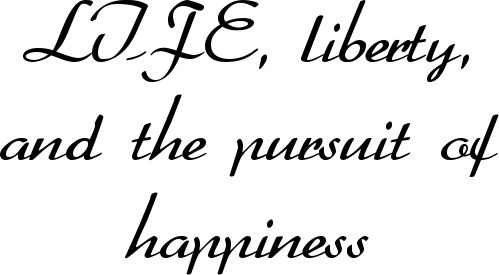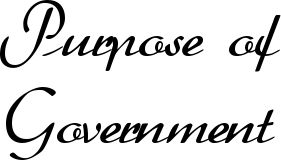| -------------------------------------------------------------------------------------------------------------------------------------------------------------------------------------------------- | |||
 |
|
Image borrowed from readschmead.wordpress.com |
The purpose of government is to protect the rights of its citizens, but what happens when upholding one right means to violate another? Thomas Jefferson once said, “We hold these truths to be self–evident, That all men are created equal, That they are endowed by their Creator with certain unalienable Rights, That among these are Life, Liberty and the pursuit of Happiness. – That to secure these rights, Governments are instituted among Men. Deriving their just powers from the consent of the governed.” There is a reason that Jefferson listed life as the first inalienable right. Life is priceless and irreplaceable. Above all else, government needs to keep its citizens safe. But, American citizens are very protective of their right to privacy, and now, more than ever, it is being threatened, and it’s the government’s responsibility to protect it. But, it’s also the government’s responsibility to protect the citizens themselves. Invading their privacy could possibly save their lives in certain situations. This issue has been wrestled with for years, but just within the last decade the United States government has chosen a side. With the arrival of the Patriot Act, the United States government has chosen to put its citizens’ safety ahead of their right to privacy. On the surface, this seems like the logical, responsible action. Human life is priceless, hence it needs to be protected above all things. But, what separates humans from animals is that we acknowledge more than our physical well being. America was founded on the concept of true freedom. Violating citizens’ right to privacy in favor of protection seems to defy the purpose of government: to protect the rights of its citizens. But isn't life a right in itself? Corey Doctorow offers an example of where the United States could be going in this aspect. In his novel, Little Brother, the protagonist is abducted by the government, and proceeds to be watched by the government through various forms of technology. This book provides one answer to whether or not the government is justified in putting protection over privacy, but is it the right answer? I believe the government is correct in putting the safety of its citizens above their privacy, but in doing this, the government walks a very fine line. Doctorow's stance is not an uncommon one. He places principles before tangible conerns, which, in some cases, is necessary, in this case misguided, considering the tangible concern is the lives of millions of American citizens. |
| -------------------------------------------------------------------------------------------------------------------------------------------------------------------------------------------------- | ||||



